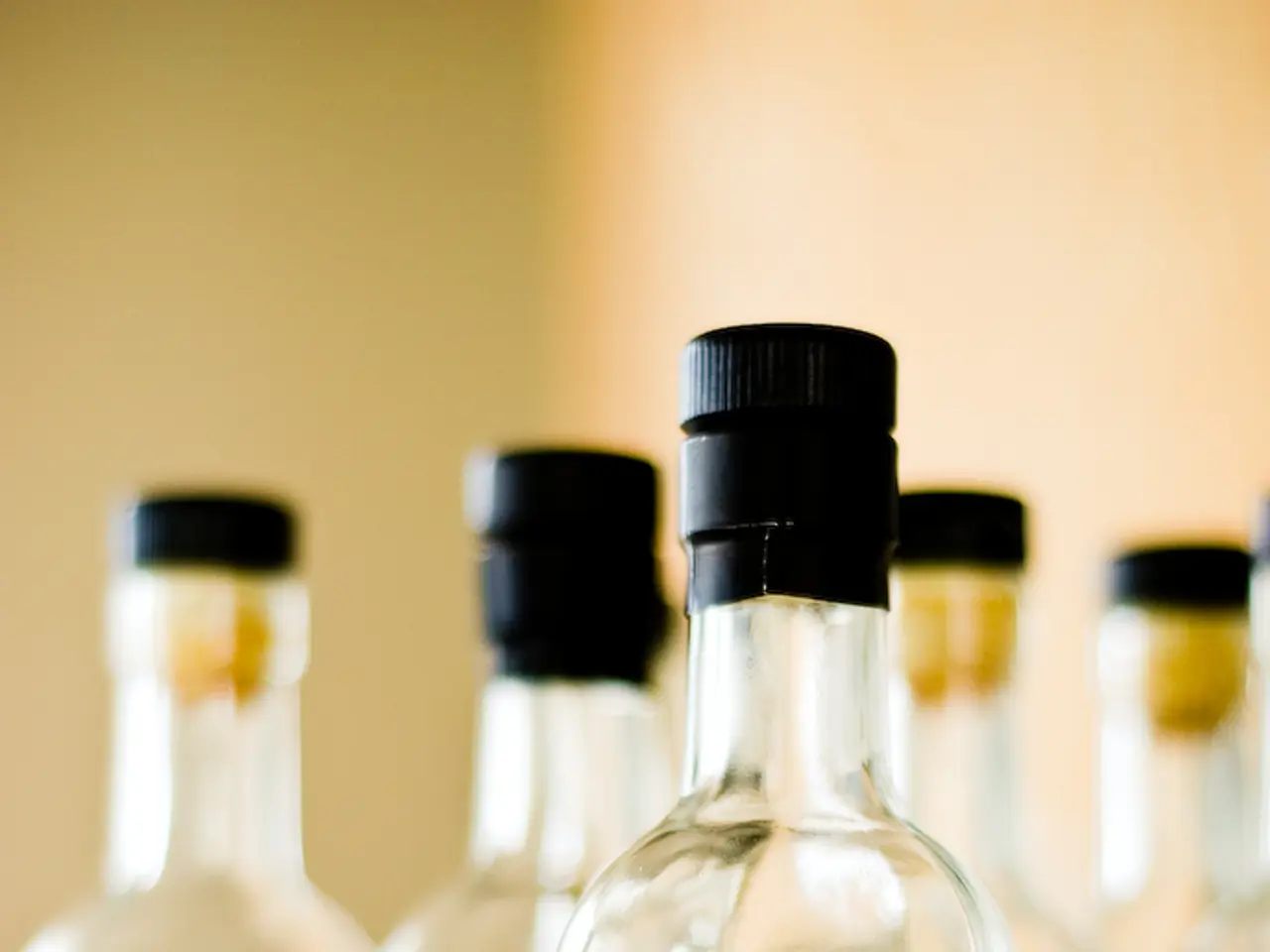Increased Demand for Explicit Cancer Warnings on Bottles of Alcoholic Beverages
In the health and wellness landscape, a significant shift is underway as governments around the world consider implementing cancer warnings on alcohol labels. This movement, driven by growing evidence linking alcohol consumption to increased cancer risk, is gaining momentum.
United States
In the U.S., the call for updated health warning labels on alcoholic beverages has gained traction. Former U.S. Surgeon General Dr. Vivek Murthy has advocated for this change, emphasizing the link between alcohol and cancer[2][4]. However, the U.S. has yet to implement these warnings, with discussions ongoing about revising dietary guidelines and health warnings[2].
International Comparisons
Australia
Australia is leading the way in this global trend. Starting from 2026, the country will require cancer warnings on alcohol labels, highlighting the direct link between alcohol and seven types of cancer[1].
Ireland
Ireland, like South Korea, does not currently have specific cancer warning labels on alcohol. However, the country is actively working on reducing alcohol harm, with a focus on public health measures and education[5].
South Korea
South Korea, too, has been implementing various measures to reduce alcohol consumption, focusing on education and regulation. While there are no specific cancer warning labels in use, public health campaigns are becoming more prominent[5].
United Kingdom
The U.K. is considering mandating explicit cancer warnings on alcoholic beverages, with dozens of medical and health organizations urging Prime Minister Keir Starmer to introduce such legislation[3].
Balancing Public Health and Personal Autonomy
The balance between public health messaging and personal autonomy regarding alcohol's health risks is a key challenge. This delicate balance is reflected in the ongoing discussions about revising health warnings and implementing cancer warnings on alcohol labels[2].
Whether warning labels will reshape drinking culture remains to be seen, but they may make the risks harder to ignore. Moderate alcohol use may still be a personal choice when presented with evidence-based risks[6].
The Future of Alcohol Labeling
As the evidence linking alcohol to cancer and other health risks becomes clearer, the need for more detailed information when communicating these risks is increasingly apparent. Statistician David Spiegelhalter has emphasized this need, calling for more detailed information on alcohol labels[6].
The World Health Organization's 2023 guidance that "no amount of alcohol is safe" has drawn criticism for lacking nuance and potentially backfiring[6]. However, the growing momentum towards implementing cancer warnings on alcohol labels suggests a shift towards treating alcohol with the same public health seriousness as tobacco.
In the U.S., the alcohol industry has spent millions on lobbying efforts to prevent any action regarding stronger warnings[4]. Yet, the link between alcohol and cancer is undeniable, with alcohol estimated to be linked to approximately 100,000 cancer cases and 20,000 cancer deaths annually[4].
As governments grapple with this issue, raising awareness about the risks associated with alcohol consumption is crucial. Whether through warning labels or public health campaigns, the goal is to empower individuals to make informed decisions about their health and well-being.
[1] ABC News [2] CNN [3] The Guardian [4] NPR [5] The Korea Herald [6] The Conversation
- The U.S. is deliberating on revising dietary guidelines and health warnings, with a significant focus on potentially adding cancer warnings to alcohol labels.
- Australia will mandate cancer warnings on alcohol labels from 2026, highlighting the link between alcohol and seven types of cancer.
- Ireland is actively working on reducing alcohol harm and education, but does not currently have specific cancer warning labels on alcohol.
- South Korea is focusing on education and regulation to reduce alcohol consumption, though no specific cancer warning labels are in use.
- England is considering legislation to mandate explicit cancer warnings on alcoholic beverages, with support from various medical and health organizations.
- The balance between public health messaging and personal autonomy regarding alcohol's health risks is a major challenge, as decisions about revised warnings continue.
- As the evidence linking alcohol to cancer and other health risks becomes more evident, there is a growing call for more detailed information on alcohol labels.
- Various policies, news, and debates surrounding alcohol, including politics, general news, crime, accidents, fires, wars, and migration, contribute to ongoing discussions about the future of alcohol labeling and health warnings.




